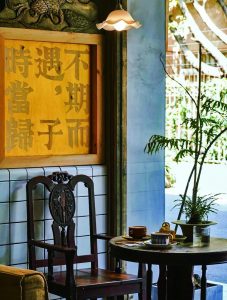
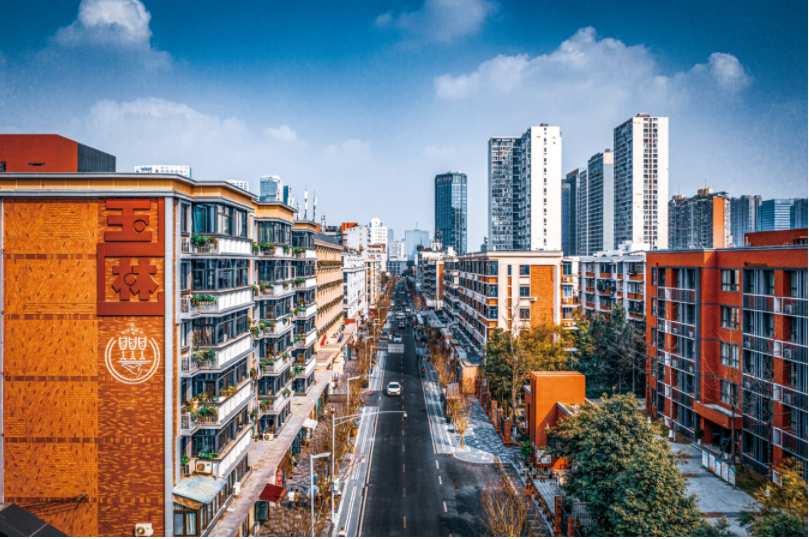
“The baby is chubby, rides to Chengdu. Having fun there in Chengdu. The baby rides a white horse…” This Sichuan nursery rhyme has been popular for more than a hundred years. Chengdu is fun and desirable, and the best place to represent Chengdu is Yulin.
Before Zhao Lei’s “Chengdu” was sung, the poet Zhai Yongming moved her famous “white night” bar from Yulin to Kuanzhai alley. At that time, she probably paid more attention to the cultural atmosphere of the wide and narrow alleys, the surging tide of people who coerced the atmosphere of the world, and the possible clash of ideas.
At that time, the “white night” was surrounded by dense snack stalls, medium and low-grade fashion stores and grocery stores around Yulin. These “xialiba people” with poor decoration and even outdated, lack of design elements and no cultural proposition are more and more out of touch with the “white night” like sunshine and snow. More importantly, most of the poets who took “white night” as their cultural home, such as Yang Li and he Xiaozhu, bid farewell to the Yulin community they had been used to living in for many years and chose another place to live. Therefore, 36 strategies are the best policy, and “white night” has lost the opportunity to “update” with Yulin
Yulin Street has no end
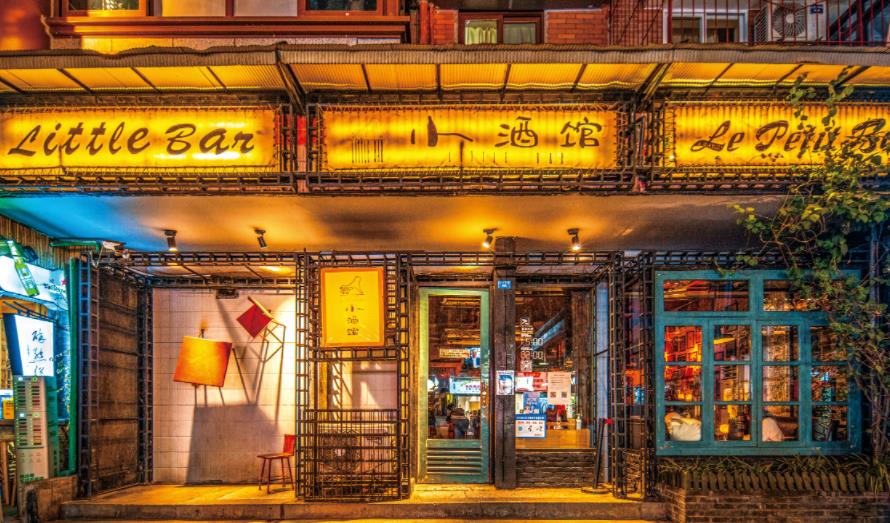
“Go to the end of Yulin road and sit at the door of the tavern.” The tavern in Zhao Lei’s “Chengdu” is on Yulin West Road. Today, it is the core of the whole Yulin district. When there is no epidemic control, it will be crowded with young people from all over the country after noon every day to experience the taste of life in Chengdu. “One is hard to find” is the daily modality of “tavern”.
Before 2019, my good friend Yan, Wuxi National People’s Congress, will arrange at least four times a year for about 15 days each time to visit the teahouses and bars hidden in the city wells, so as to make new friends who are either graceful and charming or deep and restrained. In his opinion, behind the teahouses and bars with different styles in Chengdu, there are a group of people with stories, interesting and ideas worth meeting. The inspiration they gave him in life and work is extremely precious.
I once suspected that he used this as an excuse to see the beautiful women in Chengdu, but was ridiculed by a beautiful bartender as “less common than more strange”. She said: “seeing beautiful women is one of the current urban competitiveness of Chengdu, which is understandable.” I remember the first time I took Dayan to Yulin to look for a tavern, I pointed to the viaduct of the second ring road and said that there was the end of Yulin road. Dayan looked in the direction of my finger for a few seconds and said something quite meaningful: “it’s still a street over the bridge. People are still people when they walk past. The smell of hot pot and the smell of bar are the same. Where is the end of Yulin road!”
From the map, Yulin street looks like half of the “wood” of the word “Lin” in cursive script, but the beginning of “wood” is not so obvious. Therefore, it also looks like a very wide dress hanging on the hanger. The longitude and latitude of the inner street and the geographical indications of various color units are the texture of this dress.
According to yuan Tingdong, a scholar of Bashu culture, the name of “Yulin” is related to Zhang Xianzhong’s garrison of “Yuying” during the change of Ming and Qing Dynasties. It seems that “Yulin” comes from the sound of “Yuying” (first, it is named after Zhuge Liangtun Yulin Army). Another saying has been widely adopted by local media: many years ago, in order to resist the invasion of wind and sand outside the main city, Chengdu people planted a protective forest here, and the place name followed the functional “imperial forest”. Therefore, today’s “Yulin” is also the sound of “Yulin”.
At the beginning of reform and opening up, it was still a farmland. Since then, it has been a vegetable base in Chengdu for a long time. In the 1980s, with the expansion of the city, the “royal forest” in that year became the “Heaven’s choice” for the new planned residential area because it was located in the southwest axis of the city.
In 1991, after the adjustment of Chengdu’s administrative division, it was officially divided into Wuhou District. After nearly 40 years of deep cultivation, “Yulin community” has gradually grown into a spokesman for people’s comfortable life and a model of Chengdu community life tradition and rebirth. Jade trees face the wind and trees show in the forest. Even if we interpret the exterior and interior of “Yulin” from the perspective of literal meaning, it is infinitely close to the aesthetic standard of life in Chengdu.
There is a faint fragrance across the lane
The geographical conditions of Yulin Street are indeed extremely superior in the new urban blocks in the 1990s. East of Yulin street is a straight north-south avenue of the city, Renmin South Road; On the left is a slightly curved pulp street; The north line is the South third section of the first ring road; In the south, Metro Line 8 runs through it. In this area with a total area of 2.7 square kilometers, several longitude and latitude main streets such as Yulin West Road, Yulin South Road, Yulin East Road, Yulin street and Fangcao Street are linearly distributed. Attached to these main streets are countless capillary streets. Yulin created and provided a large part of the urban memory of Old Chengdu, which is full of industries, noisy markets and streets.
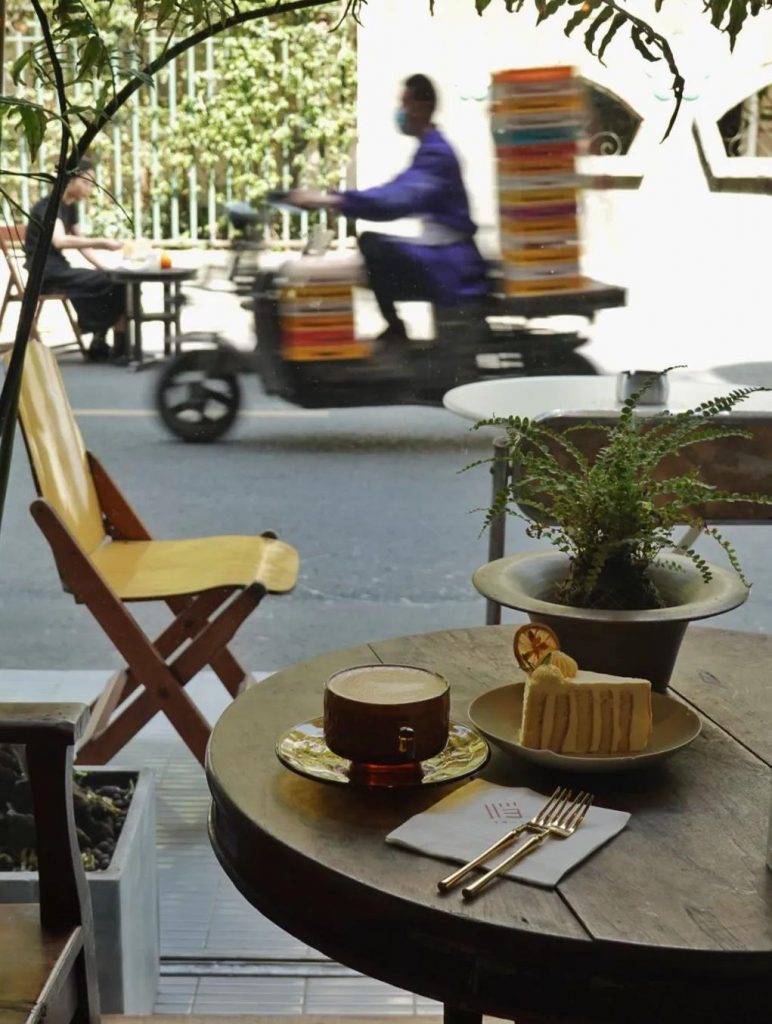
The greatest benefit of an acquaintance community comes from the spiritual resonance in the depths of emotion and the human needs of practical communication, but it also means that it is aging, traditional and not fashionable enough – old streets, old people and old ideas. Yulin urgently needs to “shine new”. It’s hard to say how much of this community’s impulse to renew is driven and influenced by Zhao Lei’s Chengdu, but the young fashion group that followed, after sitting at the door of the “tavern” for a while, was suddenly captured by the smell of market life coming from this block. The fashionable crowd overflowing from the “tavern” has brought great opportunities for the organic renewal of this community.
The first renewal project comes from the “blooming Yulin” of soft environment upgrading and transformation. The purpose is to make the street fashionable and choose Shangheng street in Yulin. In 2017, after the completion of the first phase of the reconstruction of this alley, a street in Yulin block was also reconstructed one after another. In 2018, Chengdu selected “the most beautiful street”. Yulin Street won the title with the highest vote and became the most beautiful street in Chengdu.
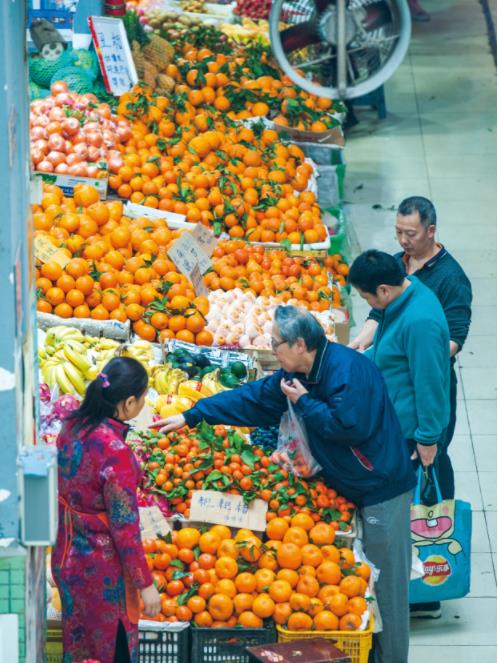
The street after the renewal of the soft environment soon attracted the attention and entry of some brand merchants. Especially after the opening of Metro Line 8, Yulin, an old Chengdu food gathering place, has poured into many popular foods: old wharf, Overlord shrimp, Wang Ma’s hand torn roast rabbit, Yulin string of incense, some hidden in Yulin food market, while others are concentrated in Yulin life market. Spicy and delicious are the common characteristics of these delicacies.
Chongqing hot pot and noodles are also “updated” in Yulin street. This is about a step that Chongqing cuisine has to go through after entering Chengdu: the authentic Chongqing taste has been improved in Chengdu and accepted by more and more Chengdu people. Chongqing noodle restaurant in Yulin East Street is praised by diners for its noodles and spicy oil. In addition to reconciling the personalized needs of diners, Chongqing Xiaomian continues to retain its characteristics of sufficient materials. A bowl of beef noodles and six pieces of badly burned beef are full of sincerity, which makes people eat breathtaking.
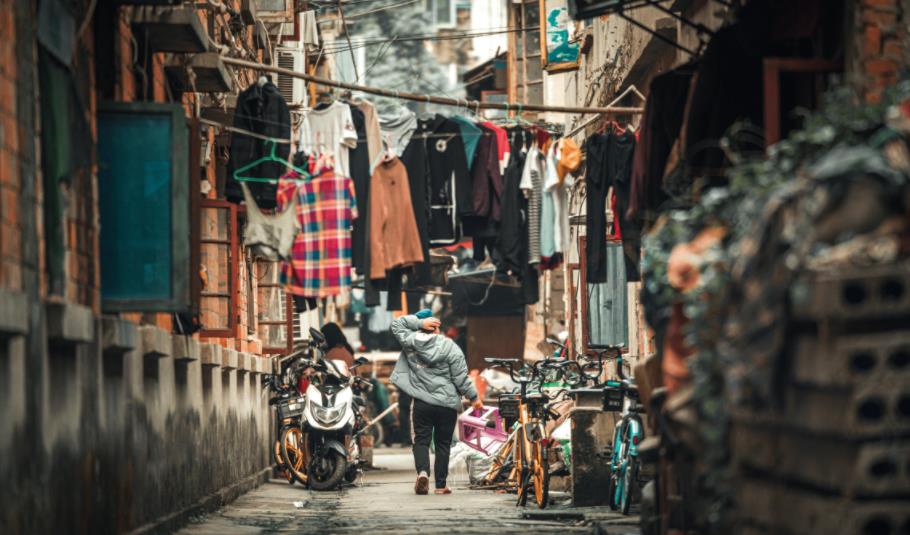
After the renewal of Yulin block, many creative coffee shops and teahouses have also poured into it. Different from the simplicity of Old Chengdu people drinking covered bowl tea, these exquisite petty bourgeoisie coffee shops and teahouses are good at drinking. Tea tasting, which pays attention to ritual order and aesthetic pursuit, combines more functions such as literary and artistic topics, aroma smell, flower path and even elegant collection. They are often hidden in the streets of Yulin. Without entering in person, it is very difficult to find their elegance and taste. Fortunately, those wonderful people who are interested in seeking seclusion and visiting have the smell of “smelling the fragrance and knowing the beauty shop”, and they will always find them with a continuous stream of fragrance.
More than a bistro, beyond a bistro
As a native of Chengdu, Chen Dian is a post-80s artist who has deep memories and feelings for Yulin. She has a very old-fashioned stage name – “Grandma Dian”, but she doesn’t mind it. In the “Love Corner Cultural and Creative District” in Yulin 4th Lane, her cultural and creative product store is the most popular one among community residents.
The cartoons she created to describe the life of the well in Chengdu were accompanied by Sichuan phrases such as “Looking at the chicken coop with back hands – not easy (picking up eggs)”, “trumpet maker raising his neck – high profile again”, full of Sichuan humor, showing It shows the humor and cuteness in the heart of Chengdu people. She turned the people, things and things in Chengdu life into cultural and creative products, and became the cultural and creative IP of “learning Chengdu dialect”. In her, it embodies the infinite creativity of Chengdu people for life aesthetics.
How can the organic renewal of the city be without “rolling”. Since the wall-climbing panda of Chengdu IFS has been watched by people all over the country, Chengdu people have been trying to make the giant panda appear in various scenes. Therefore, when the “Hey Expert” Cultural and Creative Block was carrying out the organic renewal design of the community, the first thought was to invite the giant panda as a city promotion ambassador. Here, Wang Manbei, a teacher specializing in panda culture and creativity, and Xu Liang, a professor at the School of Arts of Sichuan University, often sit together to discuss pandas and Chengdu culture, and continue to incubate panda cultural and creative IP. In the “Love Corner Cultural and Creative District”, there are dozens of such small cultural and creative shops, small but beautiful, small and refined, with both appearance and connotation, “go straight to the characteristic cultural and creative shops after get off work”, It has become the daily life of a considerable number of Chengdu people.
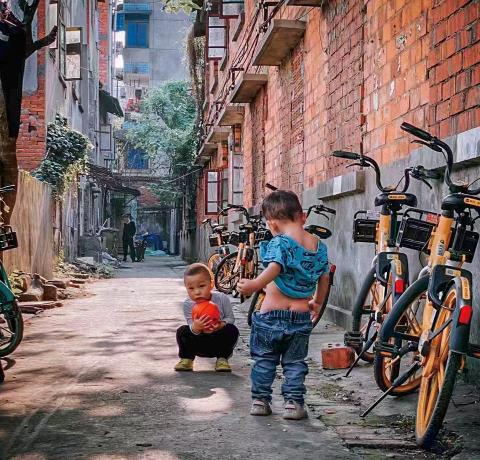
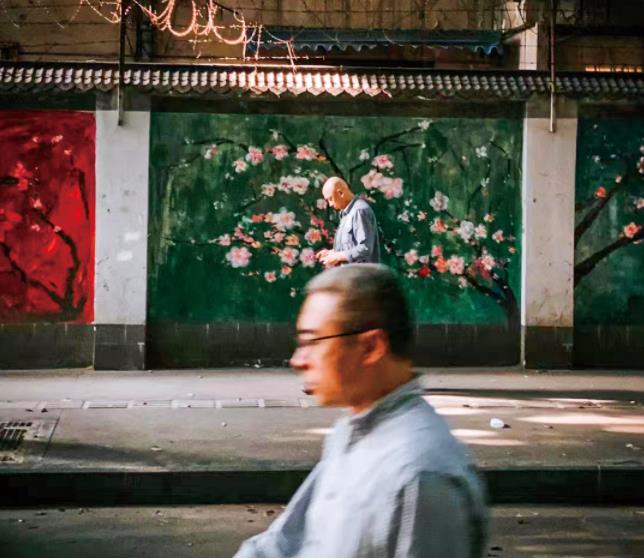
△Old White Night and New White Night
More than a bistro, beyond a bistro. This is the goal of urban renewal in Yulin.
After Yulin “Bai Ye” moved out, the original site changed a few owners and business formats, but they were all uncharacteristic restaurants or clothing stores. It was not until writer Zhang Shulin settled in with her massive embroidery pieces that the business format of Yulin Street was managed. After taking a reassurance, the original “White Night” became “Ram Upstairs”. Since the 1990s, she has walked the streets and alleys in Hunan, Hubei, Yunnan and other places, collecting hundreds of thousands of old embroidered pieces, tiger head hats and tiger head shoes from the Ming and Qing Dynasties. Zhang Shulin took Yulin as a testing ground and a transit place for the transformation of traditional clothing, attracting a large number of clothing colleagues, collectors and artists who are interested in traditional old embroidery pieces.
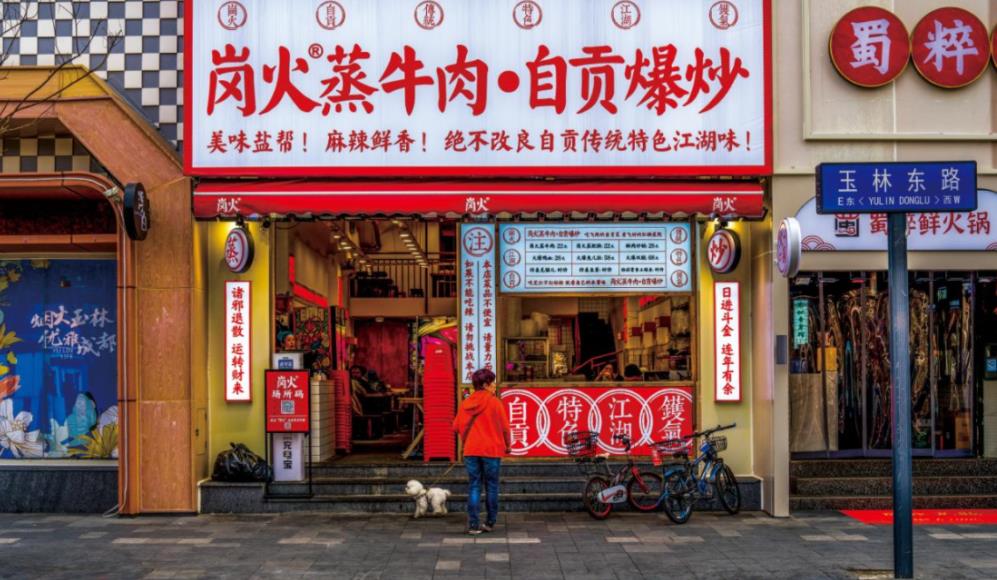
Most of the time, Zhang Shulin is doing elegant gatherings in “Lam Upstairs”. Or about literary creation, or about the aesthetics of traditional clothing, there are many celebrities who come and go, and there are white dings. Store hours are no longer from what time to what time. Sometimes, an “uninvited guest” who was attracted by the warm lights and laughter suddenly came in, and everyone didn’t care. They hurriedly added seats and added tea, or ordered a late night snack, and they had to drink two more bottles of red wine together. go away.
When I went out, Yulin at midnight was still like the beginning of a lantern.
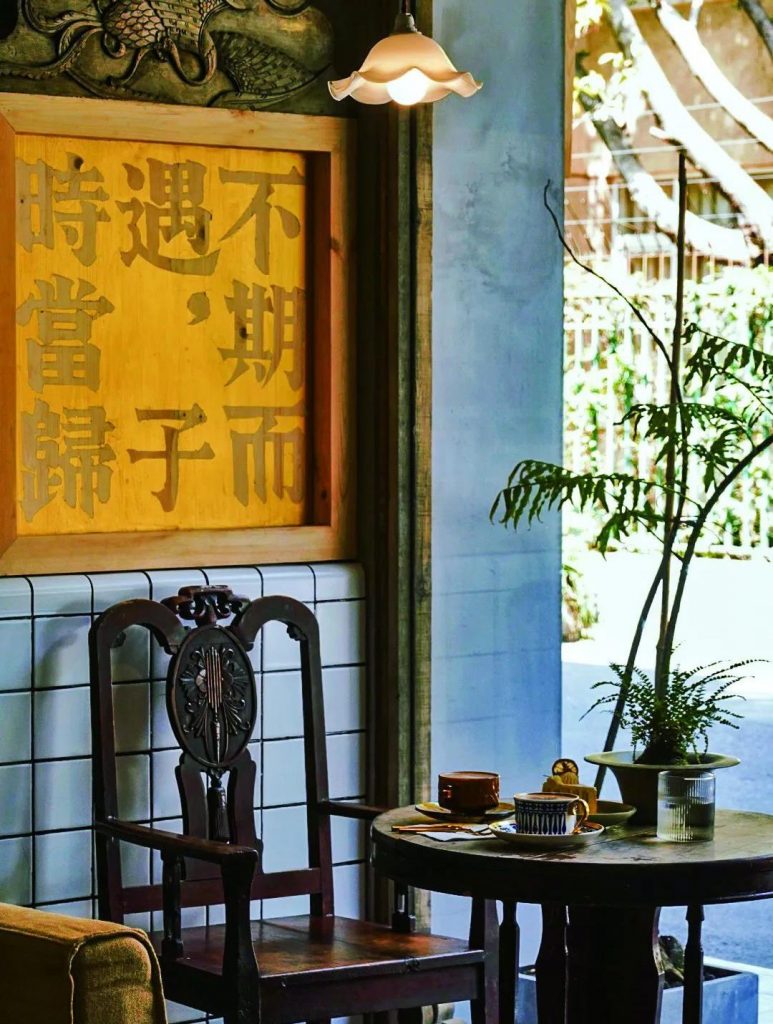
There is also a new ending to the story of “White Night”. Perhaps because of the Yulin complex that can never be forgotten anywhere, or attracted by the more diverse cultural atmosphere of the updated Yulin, the poet Zhai Yongming recently found Zhang Shulin and got a share of the business area of ”Lam Upstairs”. Most of the time, restart “White Night”. The return of “White Night” is like a lost and found love.
The Beilei community bookstore built in Yulin by Liao Yun, the owner of Sanhua Academy, is another cultural landmark. This community bookstore is located in the courtyard at No. 5, Beilei Middle Lane, Fangcao Street. This was originally a tea house, and the lease ended in 2018. In order to optimize the community service function, the community decided to take the opportunity of creating a cultural and creative theme community to transform the teahouse into a community party and mass service center.
In the early stage of the renovation, Beilei Community invited a community planner to sit down with community residents to discuss and brainstorm ideas. The residents’ demands are clear: they want a bookstore, they want a space for children’s activities, and most importantly, “The yellow kudzu tree in the courtyard has been there for decades, and it must be preserved!” These are the most real and real life needs of the residents. The “beauty of people” embodied by bookstores is listed at the top. This is not a coincidence, but a necessity: Chengdu people who have a deep understanding of the connotation of life aesthetics must value their spiritual needs, and bookstores, as a carrier of life aesthetics, must be the biggest demand for community transformation. .
It was against this background that Liao Yun was invited to participate in the renovation and construction of the bookstore. As soon as she arrived here, she was immediately attracted by this yellow kudzu tree. What could be more representative of the old age than reading a book and drinking Gaiwan tea under the old yellow kudzu tree. What about the beauty of life in Chengdu?
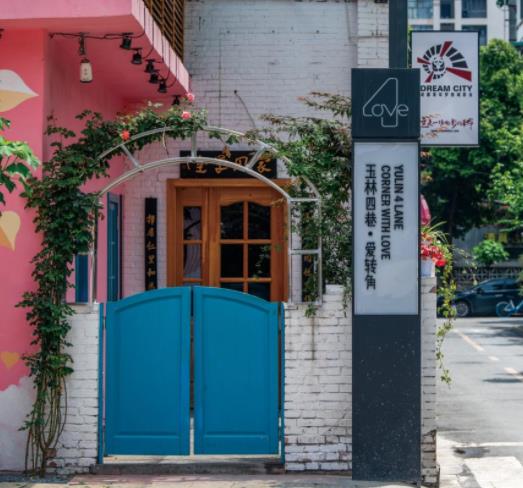
This is, of course, another encounter between beauty and beauty. In this regard, the tenth branch of Sanhua Academy, Hualuo Community, officially opened in early 2020. The Beilei Community Store of Sanhua Academy has issued a special Literary and Art Benefit Card for community residents, and they can drink a bowl of tea and sit under the Huang Ge tree for a day for only 5 yuan. The bookstore launched the “Art Talk under the Tree” brand activity held once a month, integrating the works and product resources of writers, artists, intangible inheritors, and cultural and creative institutions to enter the community and provide rich cultural services.
The bookstore invites documentary photographers, writers, editors of publishing houses, craftsmen, etc. into the community to interact and communicate with community residents, which greatly enriches the cultural connotation of the community. For these community residents, their daily life with the bookstore is like this: every morning, before the bookstore opens, the old man nearby will turn to Beilei Middle Alley 5 next to the community square after buying food. In the No. yard, the bookstore clerk received the wooden table and bamboo chairs under the eaves of the porch the night before and placed them under the tree, then went home with vegetables, finished breakfast, sat down in the yard, and ordered a bowl of tea for 5 yuan. After spending the morning, some creative and hands-on residents came up with some quite good cultural and creative products, and with the support of the bookstore, developed a series of products of “Cultural and Creative Handmade Beilei”.
It is the existence of community bookstores that not only greatly stimulates the enthusiasm of residents in the area for literary and artistic activities, but also taps the inherent cultural potential of residents. “Old Chengdu Beilei Memory” won the first prize in the 2020 Chengdu “Love Chengdu, Welcome the Universiade” community micro-update project competition.
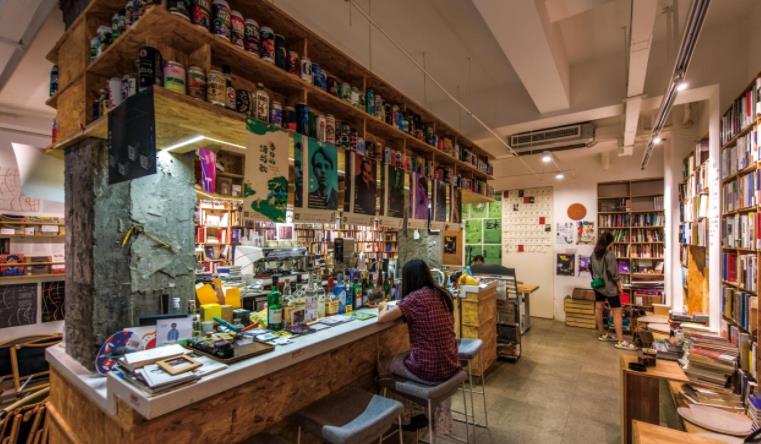
Finally, of course, there is the architectural studio of architect Liu Jiakun, which is still rooted deep in the streets of Yulin since its birth until today. Its “stubbornness” is the best endorsement for Yulin to use culture to resist commercial desires.
Go up tall buildings for the view
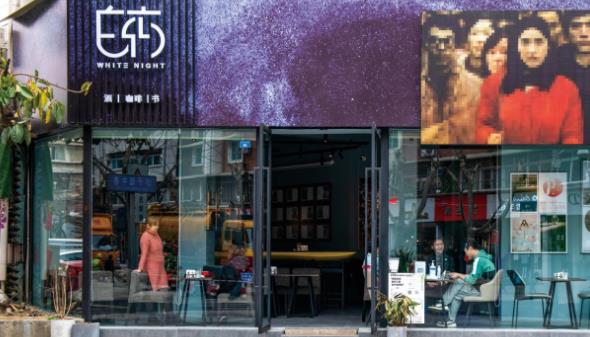
One day, my friend, Dayan, turned against customers and took me to Bushes, which is opposite the “bistro”. This is not the highest point of Yulin Street, but it is also a commanding height overlooking the whole picture of Yulin after the community update. It used to be the dormitory for the staff of the Power Supply Bureau. After being transformed into a youth culture platform, it has attracted more and more young artists with the avant-garde fashion of individual projects.
At the end of 2021, an exhibition titled “Street Genealogy · Expired and Void” unveiled the mystery of Yulin Bushes. Wang Hai, an artist and designer of Bushes, said that by positioning Bushes as a cross-media youth culture platform, he hopes to integrate and coexist youth culture and the characteristics of old Yulin, so that the young people who come here and the original residents of Yulin can maintain a sense of harmony. Dialogue relationships, presenting a diverse community.
Therefore, this building has multiple updates, but it also tries to retain its original appearance in details. “As much as possible” is its architectural technique. After the first exhibition, Bushes will follow the definition of “space brand” and “Yulin content power station”, focusing on cultural empowerment of physical space, with the theme of “cultural content development + space operation + artistic innovation”, with cross media art IP For the content, integrate and gather multi-field, multi-modal output content.
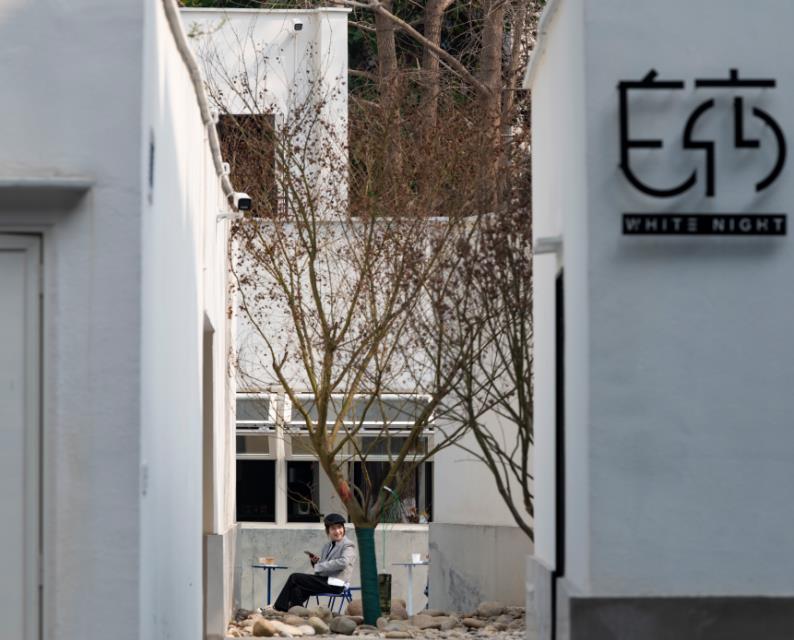
Bushes walk about 100 meters ahead, is the provincial gymnasium. Now, part of its street-facing buildings are also being remodeled, and from the outside, these buildings are as sleek, edgy and vibrant as the Bushes.
Diversified and pioneering, this is the new thinking and new path that Bushes brought to Yulin. Further ahead is the bustling and lively Renmin South Road, which should be the geographical “end” of Yulin District. But Renmin South Road and Yulin have already had me in you, and I have you in me. The cultural barriers have long been broken, and they have jumped out of the single positioning of urban functional areas and become part of the organic renewal of Chengdu, a city with a history of more than 3,000 years.
Comments